Will Windows 11 Run on 2GB RAM?
Before releasing the next generation of operating system (OS) – Windows 11, Microsoft published the minimum system requirements of Win 11, which is the highest system requirement among all Microsoft Windows editions. Among the items of system requirements, one is that the RAM should be at least 4 gigabytes (GB).
Then, are you able to install the latest Windows 11 on a computer with only 2GB of memory? Or can you install Win11 on unsupported PCs? There are hot topics related to this theme online. Let’s see what users say in some famous forums!
1. It depends
Most people think that Windows 11 can be installed on a PC with only 2GB memory storage space but with some performance decrease.
User 1
Yes, you can run Windows 11 on a 2GB RAM computer but it will lag a lot. The official minimum RAM requirement is 4GB and you are recommended to upgrade your memory to 8GB to run Win11 smoothly!
User 2
You can but you would not want to. Any laptop over 400 will have at least 4GB or even 8GB memory. Memory isn’t that expensive.
User 3
2GB RAM is only the minimum requirement for 64-bit Windows and 1GB RAM for 32-bit. I suggest going for a higher configuration.
2. No, you shouldn’t do that
Meanwhile, some users think it is impossible to install Windows 11 on 2GB RAM.
User 1
No. Assume that all other minimum specifications are met, you still can’t install Windows 11 with only 2GB RAM. My HP Envy X360 running on the first developer build of Windows 11 22000.51 with 16GB of RAM uses about 3.8 – 4.2GB of RAM at idle.
User 2
No, you will need at least 4GB memory for installing Windows 11. If you force to install Win11 on your machine, it will become useless. You cannot take advantage of browsers, work documents, emails, social apps, etc., and even virtual machines. Then, what is the meaning of installing Windows 11; it’s better to stay in Windows 10. If you want to upgrade to Win 11, it is recommended that you add more RAM to your device!
Conclusion
According to the above ideas, it is still possible to install Windows 11 on a computer with 2GB RAM though the chance is little. But all of them agree that the 2GB RAM PC running Win11 will perform badly with extremely slow speed and even useless for you can hardly do things with it. So, it is strongly recommended that you don’t install Win11 on 2GB RAM or upgrade your RAM.
How to Install Windows 11 on 2GB RAM?
If you insist on installing Windows 11 on 2GB RAM, of course, you can have a try. Yet, your installed apps and personal data may be wiped out during system installation. And, since Windows 11 will probably give you problems due to the small amount of RAM like the common lags and freezing, which may further cause BSOD and data damage/loss, it is of great necessity to create a backup of important files before the installation to ensure the data security.
Therefore, you need to rely on professional and reliable data backup software that can be installed on 2GB of RAM. MiniTool ShadowMaker is your choice. It can back up files/folders, partitions/volumes, systems, and even the entire hard disk.
MiniTool ShadowMaker TrialClick to Download100%Clean & Safe
Just download and install MiniTool ShadowMaker on the 2GB RAM computer; follow its guide to make a backup of your crucial items and save the backup image better on an external storage device. Then, disconnect the external device from the PC.
Now, let’s see how to install Windows 11 64 bit on 2GB RAM?
Unlike the former system installers, Windows 11 installer will first check the compatibility of your computer to see whether it meets the minimum system requirements or not. If it meets, you can continue to install Win11 just like install any other edition of Windows. If not, you won’t be allowed to install the OS.
Therefore, if you want to install Win11 on 2GB memory, you need to do something special like bypassing the check of your hardware’s qualification. Anyhow, just follow the below steps to achieve that!
Step 1. Prepare Windows 11 Installation Media
In the first place, you have to get an installation media of Windows 11. You can directly download Windows 11 ISO file from Microsoft’s official website. Or, you can create a Windows 11 installation USB with the official media creation tool that can also be available on that page. From both the ISO file and installation USB, you can start installing Win 11.
Step 2. Set up Registry to Bypass Hardware Compatibility Check
In the second place, you need to edit your Registry Editor to avoid computer compatibility check for installing Windows 11.
1. Open Windows 11 Registry Editor.
2. Navigate to HKEY_LOCAL_MACHINE > SYSTEM > Setup.
3. Right-click on the Setup folder and select New > Key.
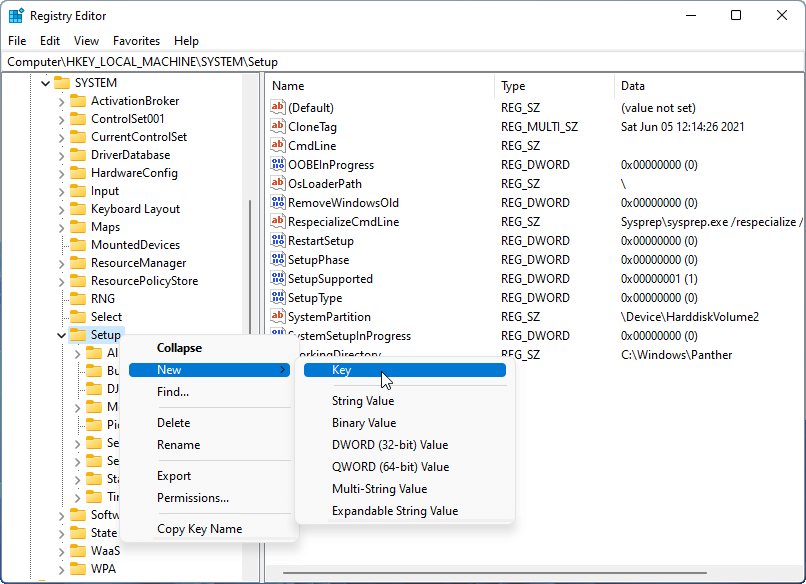
4. Rename the new key as LabConfig.
5. Under the LabConfig subfolder, right-click on the blank area in the right section and choose New > DWORD (32-bit) Value.
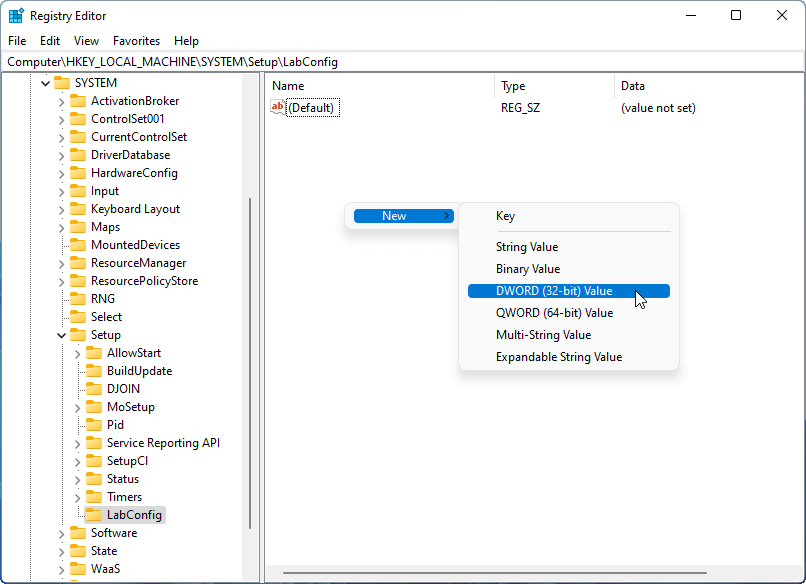
6. Name the new value as BypassRAMCheck.
7. Double-click on the BypassRAMCheck value and change its Value data to 1 in the popup.
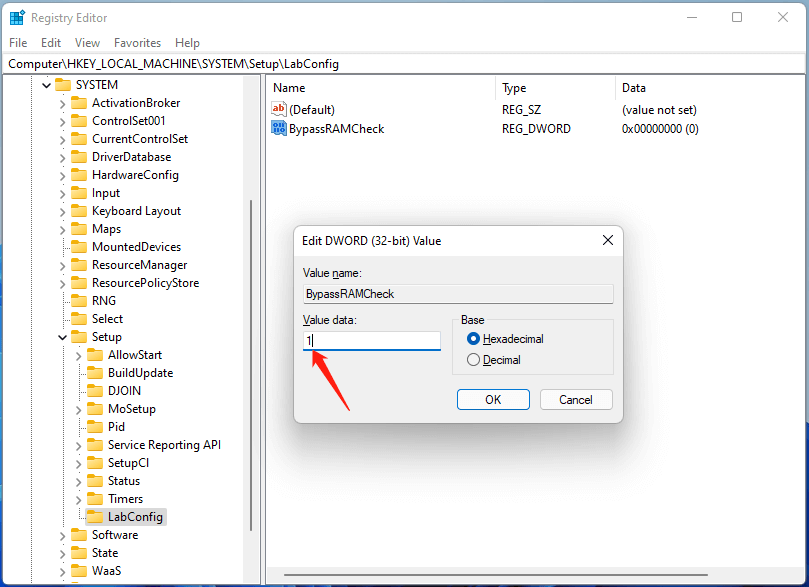
8. Save changes and exit Registry Editor.
- If there are other aspects that your computer doesn’t meet the system requirements, you should also create new DWORD (32-bit) values and set their value data to 1 to bypass the check for them. For example, BypassTPMCheck value for TPM check and BypassSecureBootCheck value for secure boot check.
- You may need to do the above registry settings when entering the installation environment, right after you enter the first Windows Setup screen. There, you need to use press Shift + F10 to trigger CMD and use regedit command to launch Registry Editor.
Step 3. Install Windows 11
Now, you can start to install Windows 11 on a 2GB RAM computer without a compatibility check. Just follow the onscreen instructions and you will smoothly complete the task. The process is similar to installing previous editions of Windows.
If unfortunately, your 2GB RAM computer breaks down after installing Windows 11 and loses all its data. You can install MiniTool ShadowMaker on another working machine, connect the external backup image to the PC, and use MiniTool ShadowMaker to restore the backup image to that computer.
Windows 11 RAM Usage vs Windows 10
In this part, we will discuss Windows 10 vs Windows 11 memory usage. A lot of netizens ask that does Windows 11 use more RAM than 10 or does Windows 11 use less RAM than Windows 10. Both are the same questions. There are different thoughts.
1. Yes, it does
User 1
Windows 11 occupies 5GB of memory on idle while Windows 10 only uses 3GB. This matters for users who have no upgradable RAM. For instance, I have a 16GB RAM laptop and I can play the most demanding games with great performance and visuals on Win10. Yet, I can’t achieve that on Win11 for the extra 5GB is the difference between being able to play games normally or having to cut graphics back.
User 2
I agree with that. On the same computer with the same software and drivers, the RAM usage on different OS is unlike. The following test is with 0 paging taking action.
No cold boot and autorun apps:
- Windows 11: 4.0 – 4.5GB RAM
- Windows 10: 3.0 – 3.8GB RAM
After actively using the system and closing all apps:
- Windows 11: sometimes failed to clear RAM back to 4.5GB and hovered at 5.0GB memory usage.
- Windows 10: tended to return to around 3.8GB memory.
So, something is going on with Windows 11 memory management system, for better or for worse.
2. No, they consume the same RAM
User 1
The system resources consumption for Win 11 is the same as Windows 10. Yet, if you use advanced features, Windows eleven will require more RAM usage.
User 2
Windows 11 does require a minimum of 4GB memory. I don’t think its requirement will be substantially larger than that of the most recent version of Windows 10. Based on my experience of running Win10, on a 4GB RAM laptop, it works fine for normal web browsing even for opening two browsers simultaneously. And, 4GB is also enough for programming.
However, on a 4GB RAM desktop, I can’t run a virtual machine. So, I upgraded it to 8GB memory. Those should be the same if you run Windows on 4GB RAM.
Other Topics About Installing Windows 11 on Low-RAM PC
Finally, we also collect some related questions about the memory requirements for installing or running Windows 11 system.
1. Can I Install Windows 11 on My Computer With 64 Bit System and 4GB RAM?
Windows 10 with 4GB RAM performs badly. You can’t play multiple tasks fluently. You can only open one program at a time. You have to wait several minutes to open an item. If you launch several apps, the system will become laggy or even hang up, which forces you to restart the computer to deal with the situation.
In recent years, applications become heavier, 8GB of memory is a must and 16GB is a sweet spot and future-proofed for several years.
2. Is 8GB RAM Enough for Windows 11?
Yeah, 8GB memory space is quiet enough for most of the activities on Windows 11. The requirement for RAM largely depends on how you use the computer. That is to say, for what purpose do you use the laptop.
If you use the PC mostly for creating content, writing messages, or simply searching for something, 8GB of memory is pretty enough. If you need to frequently surf the Internet, social like streaming, edit videos, play games, or do multitasks, then, 8GB RAM may be insufficient; you may need to upgrade to higher RAM equipment such as 16 GB or more. BTW, 8GB RAM is a minimum computer configuration in recent years.
3. Is 6GB RAM Enough for Windows 11?
For Windows 11 itself, 6GB RAM is fine. Yet, the question is that the extra memory you need to do other things like running a program and editing something. If you are a “light” computer user and just do simple work, 6GB of memory is enough. However, if you rely on the PC a lot and need to conduct complex work on it like video editing and gaming, 6GB is probably not satisfactory.
4. Is It Possible to Install Windows 11 to 1GB RAM PC?
Although I haven’t tested, it is probably impossible to install Windows eleven on 1GB RAM and you are strongly not to do so. Even if you manage to do so, the system is of no use. No offense but this question seems like a joke.
5. Can You Install Windows 11 on Any Computer?
No, some basic requirements that need to be satisfied. If your computer is more than about 4 years old, you may have to upgrade, especially very low-end machines.
To Wrap Things Up
You can install Windows 11 on 2GB RAM but you are strongly not recommended to do that. According to the user opinions in this article, despite the official minimum system requirements, 8GB is really the minimum RAM requirement in practice not only for Windows 11 but also current Windows 10 versions if you want some reasonable usage of the computer. And, if you’d like some serious working with heavy browsing and multitasking, 16GB of RAM is preferable.
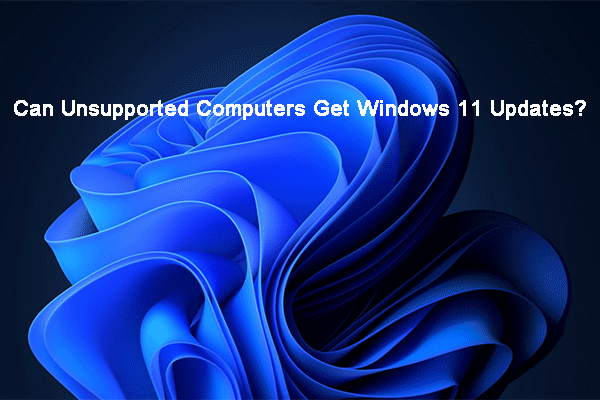
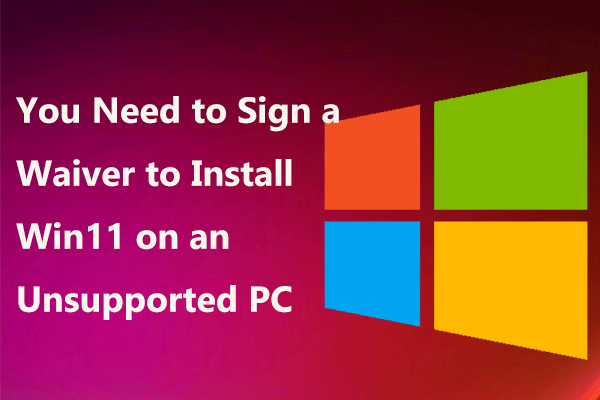
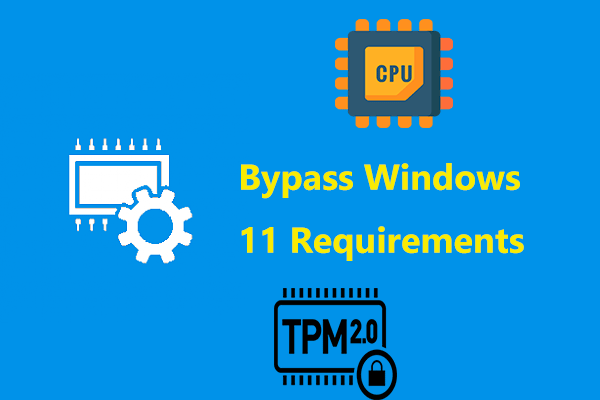
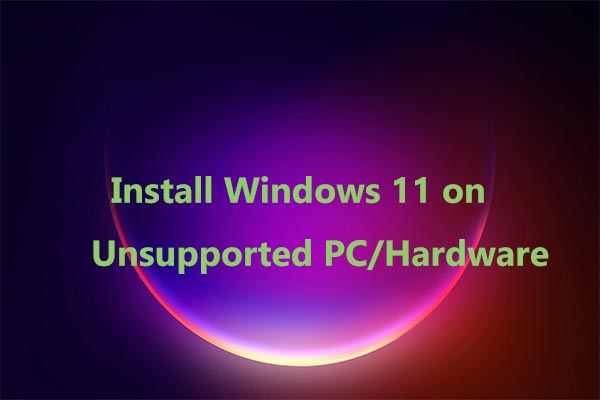
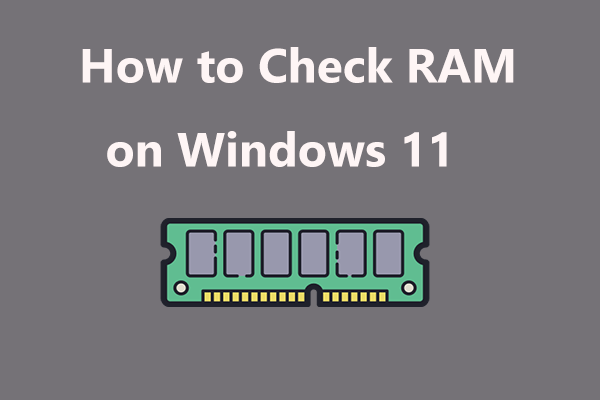
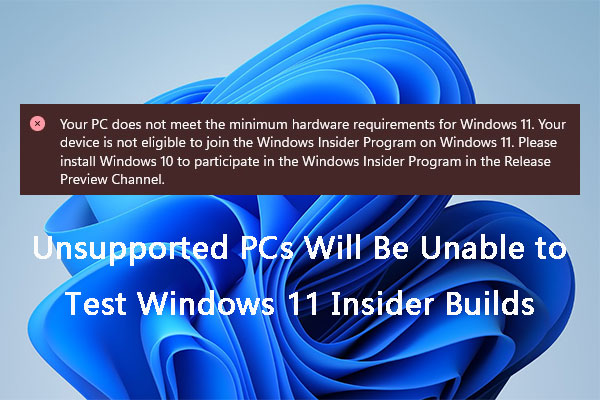
![[8 Ways] Open Windows 11 Memory Diagnostic Tool for Memory Test?](https://mt-test.minitool.com/images/uploads/2022/03/open-windows-11-memory-diagnostic-thumbnail.png)